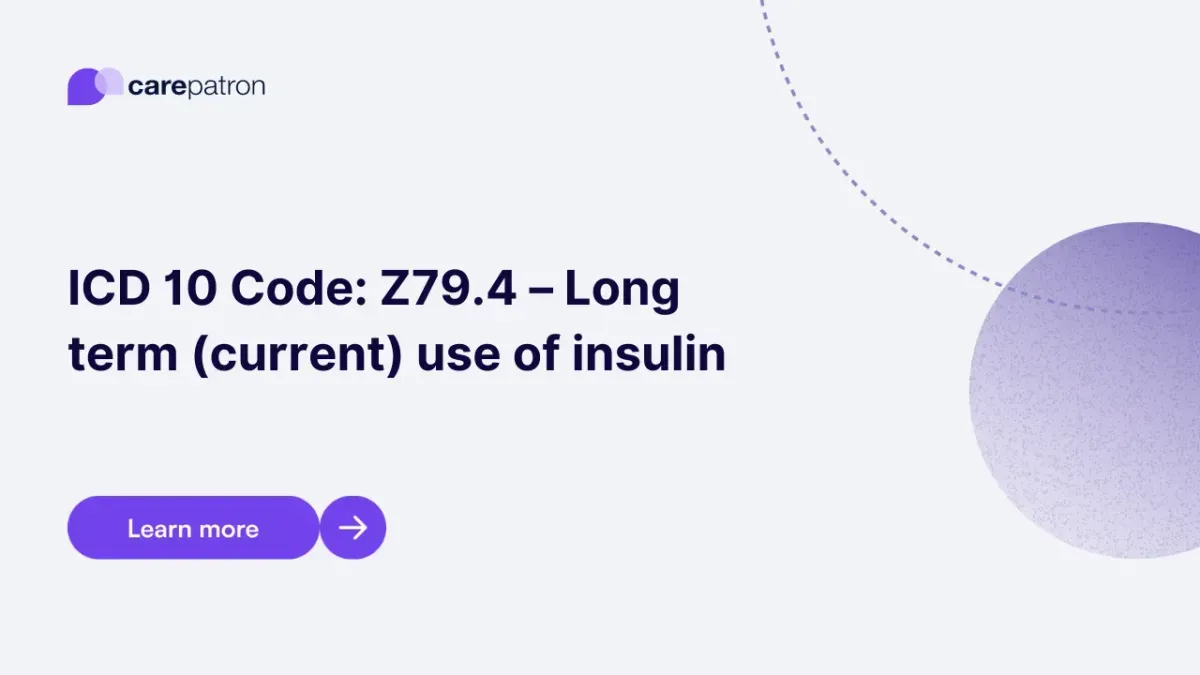
Z79.4: Long term (current) use of insulin
Read this short guide to learn about the ICD-10 code Z79.4 – Long term (current) use of insulin.
Use Code
Commonly asked questions
Long term implies an ongoing, continuous need for insulin as it is part of the patiet's routine management of their diabetes. Meanwhile, temporary use refers to the short course of insulin to control blood sugar during a hospital stay.
The medical record should have a medical list, physician's orders, or treatment plan that mentions the patient is on insulin. It should provide and clearly indicate the patient's ongoing use of insulin.
For type 2 diabetes, the following are excluded: long-term current use of injectable non-insulin antidiabetic drugs, long-term oral antidiabetic drugs, and oral hypoglycemic drugs.
EHR and practice management software
Get started for free
*No credit card required
Free
$0/usd
Unlimited clients
Telehealth
1GB of storage
Client portal text
Automated billing and online payments
